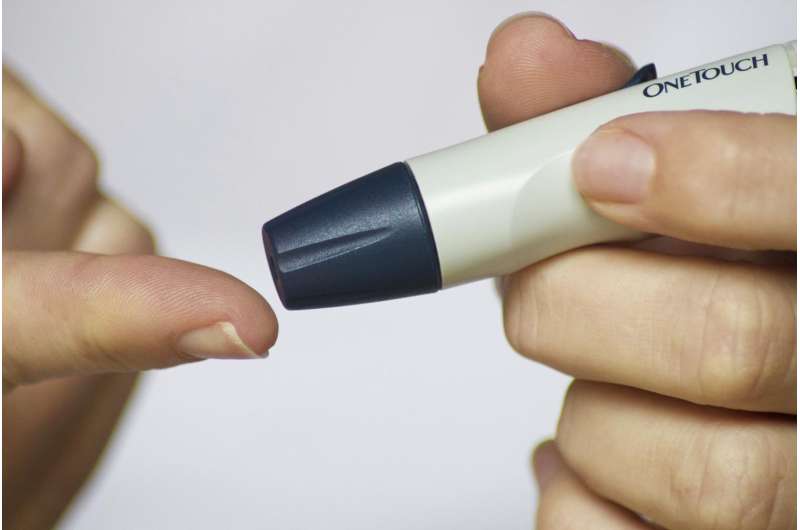Diabetes linked to changes in gene behaviour driven by environment

Why gestational diabetes leads to type 2 diabetes has baffled medical science for decades, but new research led by Deakin University has shown the answer could be in our genes' ability to change their behaviour due to signals from the environment.
Scientists are now beginning to understand how environmental factors can lead to changes to important proteins, called histones, within our cells, and regulate the way genes behave. Changes in gene behaviour caused by the environment, known as epigenetics, mean that factors like poor lifestyle can cause humans to develop diseases.
The new research found that women who develop type 2 diabetes after having gestational diabetes during pregnancy have different modifications of histone proteins from women who don't go on to experience type 2 diabetes.
Lead researcher Professor Leigh Ackland, Director of Deakin University's Centre for Cellular and Molecular Biology, within the School of Life and Environmental Sciences, said the findings had implications for preventing the development of type 2 diabetes in women who had gestational diabetes.
During the two year study, researchers measured changes in histone proteins in four groups of diabetic and non-diabetic women, during pregnancy and in early postpartum.
These groups consisted of women with no diabetes, women who had type 2 diabetes before they became pregnant, women who had gestational diabetes and went on to develop type 2 diabetes and women who had gestational diabetes but didn't develop type 2 diabetes.
The researchers tested the women at three points during and after pregnancy. The results showed that the histones were different between each group of diabetic and non-diabetic women, which is a novel finding.
Professor Ackland said the findings meant that medical professionals may be able, through epigenetic screening measures, to predict which women with gestational diabetes would go on to develop type 2 diabetes.
"By understanding the behaviour of specific genes, caused by epigenetic changes, medical practitioners may be able to target lifestyle prevention measures in women with gestational diabetes, so that they don't go on to experience type 2 diabetes," Professor Ackland said.
"The new findings are exciting and offer us an advanced understanding of how gestational diabetes could lead to type 2 diabetes, even though the study followed women only up until 20 weeks postpartum.
"We now want to complete a longer study, as type 2 diabetes can take many years to develop."
The research team has applied for National Health Medical Research Council funding to continue the study for five years.
Women with a history of gestational diabetes are at increased risk of cardiovascular disease and their offspring have an increased risk of metabolic syndrome, diabetes and cardiovascular disease.
In Australia, the prevalence of gestational diabetes is projected to increase by almost 50 per cent to affect an estimated 13 per cent of pregnancies in the future.
Women who experience gestational diabetes are seven times more likely to contract type 2 diabetes than women with normal blood glucose levels in pregnancy and there is increasing evidence that lifestyle factors including diet and exercise influence the progression of gestational to type 2 diabetes.
"Women with gestational diabetes who have a high risk of developing types 2 diabetes could be identified and put on a lifestyle modification program."
The research, "Epigenetic markers to predict transition from gestational diabetes to type 2 diabetes", has just been published in the latest online edition of high-ranking Journal of Clinical Endocrinology and Metabolism.
More information: Epigenetic markers to predict conversion from gestational diabetes to type 2 diabetes. J Clin Endocrinol Metab. 2016 Apr 5:jc20154206. [Epub ahead of print]


















